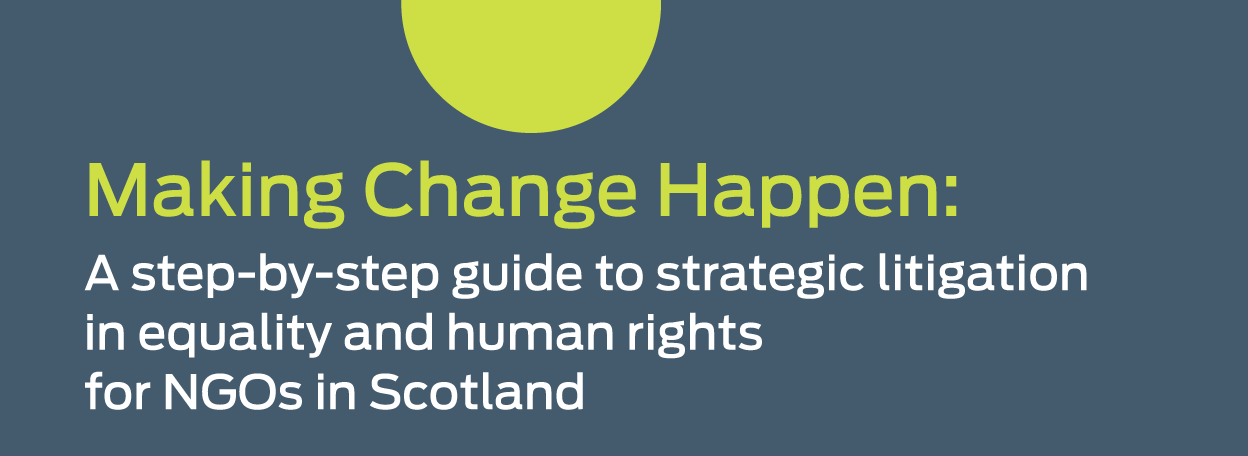How to use this guide
To use this Guide, you can:
We want this Guide to be as useful as possible! Therefore if you have any comments or suggestions about this Guide, or any case study examples to add, please get in touch by emailing: hrcscotland@gmail.com
- Check out the different Steps - these help organisations to think through involvement in strategic litigation, the things that they need to be aware of and what to include in planning.
- Within each Step, there are links to case examples and more detail on different methods.
- Use the Resources section to understand the Equality and Human Rights Commission's role around strategic litigation, to understand legal terms, and get an overview of law around equality and human rights.
- This Guide is not legal advice! See useful contacts for who to speak to for legal advice.
We want this Guide to be as useful as possible! Therefore if you have any comments or suggestions about this Guide, or any case study examples to add, please get in touch by emailing: hrcscotland@gmail.com
Disclaimer: The Human Rights Consortium Scotland has tried to ensure that the information on this website is accurate. However, the Human Rights Consortium Scotland will not accept liability for any loss, damage or inconvenience arising as a consequence of any use of or the inability to use any information on this website. Furthermore, Human Rights Consortium Scotland assumes no responsibility for the contents or availability of linked websites.

